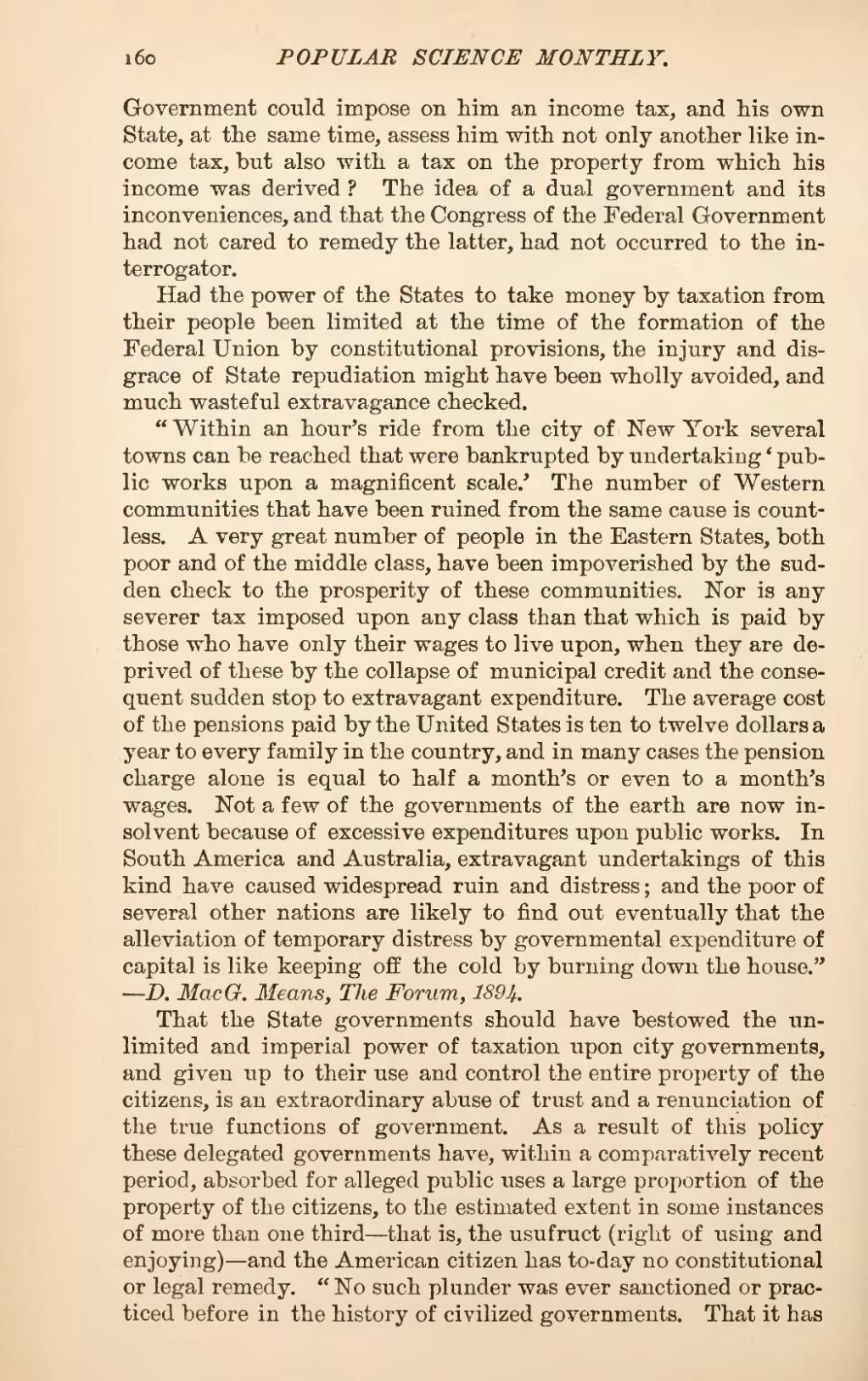Government could impose on him an income tax, and his own State, at the same time, assess him with not only another like income tax, but also with a tax on the property from which his income was derived? The idea of a dual government and its inconveniences, and that the Congress of the Federal Government had not cared to remedy the latter, had not occurred to the interrogator.
Had the power of the States to take money by taxation from their people been limited at the time of the formation of the Federal Union by constitutional provisions, the injury and disgrace of State repudiation might have been wholly avoided, and much wasteful extravagance checked.
"Within an hour's ride from the city of New York several towns can be reached that were bankrupted by undertaking 'public works upon a magnificent scale.' The number of Western communities that have been ruined from the same cause is countless. A very great number of people in the Eastern States, both poor and of the middle class, have been impoverished by the sudden check to the prosperity of these communities. Nor is any severer tax imposed upon any class than that which is paid by those who have only their wages to live upon, when they are deprived of these by the collapse of municipal credit and the consequent sudden stop to extravagant expenditure. The average cost of the pensions paid by the United States is ten to twelve dollars a year to every family in the country, and in many cases the pension charge alone is equal to half a month's or even to a month's wages. Not a few of the governments of the earth are now insolvent because of excessive expenditures upon public works. In South America and Australia, extravagant undertakings of this kind have caused widespread ruin and distress; and the poor of several other nations are likely to find out eventually that the alleviation of temporary distress by governmental expenditure of capital is like keeping off the cold by burning down the house."—D. MacG. Means, The Forum, 1894.
That the State governments should have bestowed the unlimited and imperial power of taxation upon city governments, and given up to their use and control the entire property of the citizens, is an extraordinary abuse of trust and a renunciation of the true functions of government. As a result of this policy these delegated governments have, within a comparatively recent period, absorbed for alleged public uses a large proportion of the property of the citizens, to the estimated extent in some instances of more than one third—that is, the usufruct (right of using and enjoying)—and the American citizen has to-day no constitutional or legal remedy. "No such plunder was ever sanctioned or practiced before in the history of civilized governments. That it has

